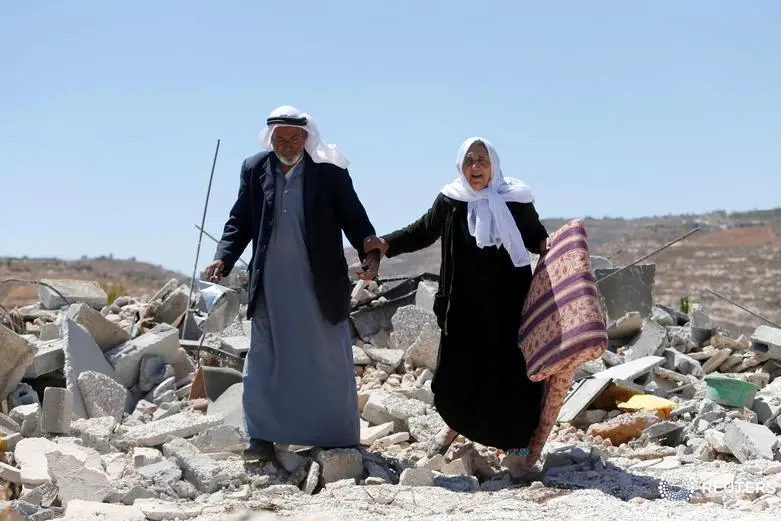PHOTO
By Yuval Ben-David
HEBRON, West Bank, June 19 (Reuters) - The heart of the old city of Hebron is divided, with Israeli military checkpoints, mechanical turnstiles and closed-circuit cameras controlling the movement of Palestinians in and out of an area inhabited by some 800 Jewish settlers.
Inside the secured zone stand two ancient shrines, side-by-side - the Tomb of the Patriarchs revered by Jews, and the Ibrahimi Mosque revered by Muslims, ensuring Hebron's position as a source of religious friction for centuries.
But as well as the conflict over land, settlements and religion, there is another battle in the largest city in the Israeli-occupied West Bank: an ideological conflict between left- and right-wing Israeli NGOs over how to explain Hebron to outsiders.
On one side stands Breaking the Silence, a leftist group of former Israeli soldiers opposed to the occupation, which for years has led tours of Hebron for foreign visitors, highlighting the restrictions routinely faced by its 200,000 Palestinians.
On the other stands Im Tirtzu, a right-wing NGO that over the last year has run a handful of tours denouncing Breaking the Silence, accusing it of deepening ethnic faultlines and fuelling anti-Semitism with its criticism of Israel's actions.
"You have to understand, there's a war of narratives here," said Yishai Fleisher, a spokesman for the Jewish community of Hebron, as he led a recent Im Tirtzu tour down Shuhada Street, once a busy market road but now mostly closed off to Palestinians and renamed "King David Street" by the city's Jews.
"There are two wars we're fighting. The narrative war justifies the other war -- the war on terror," he said. "We're good at fighting the physical war, but at the narrative war, sadly, we're behind."
That is not how Breaking the Silence sees it. Since it was set up in 2004, the organisation has shared testimony from former soldiers opposed to the Israeli military's activities.
Nadav Weiman, the group's education director, said the aim of the Hebron tours, which happen monthly, was not to level criticism at the army but to open visitors' eyes to the realities of the occupation, now in its 50th year.
"We want people to come here and understand what the occupation is," he told Reuters. "We think the problem is the policy that sends the soldiers over here. The soldiers and the settlers are a symptom but not the problem."
BATTLE OF IDEOLOGY
As Breaking the Silence led a group of around 20 visitors on one recent tour, two settlers allied to Im Tirtzu began screaming abuse at the guide, a former soldier.
"You're lying to them!" one of them shouted, filming the scene on his phone. "You're trash, you're a stinking traitor."
Those taking part in the tour filmed the exchange themselves, each collecting a digital record of the battle.
Weiman brushed off Im Tirtzu's disruptions, saying his organisation was focused on shedding light on wrongdoing.
"Violations of human rights are not a domestic issue, they're an international issue," he said. "It's not my secret or the Palestinians' secret, it's the truth."
The growing criticism of Breaking the Silence has been fuelled by right-wing Prime Minister Benjamin Netanyahu, whose supporters in parliament are backing legislation that would prevent the organisation from giving talks in Israeli schools.
Matan Peleg, the head of Im Tirtzu, says he wants to expose "propaganda groups", some of which receive funding from European countries, and are painting Israel in a bad light.
"Breaking the Silence is anti-Zionist," he said, adding that Jews have lived in Hebron for thousands of years and have the right to live in the heart of the city.
Weiman sees it very differently.
"The problem is the occupation," he says calmly. "The command given by our government."
As the shouting and denunciations continued during the tour, local Palestinians could only look on, nonplussed.
(Editing by Luke Baker/Mark Heinrich) ((luke.baker@thomsonreuters.com; +972-2-632-2200; Reuters Messaging: luke.baker.thomsonreuters.com@reuters.net))





















